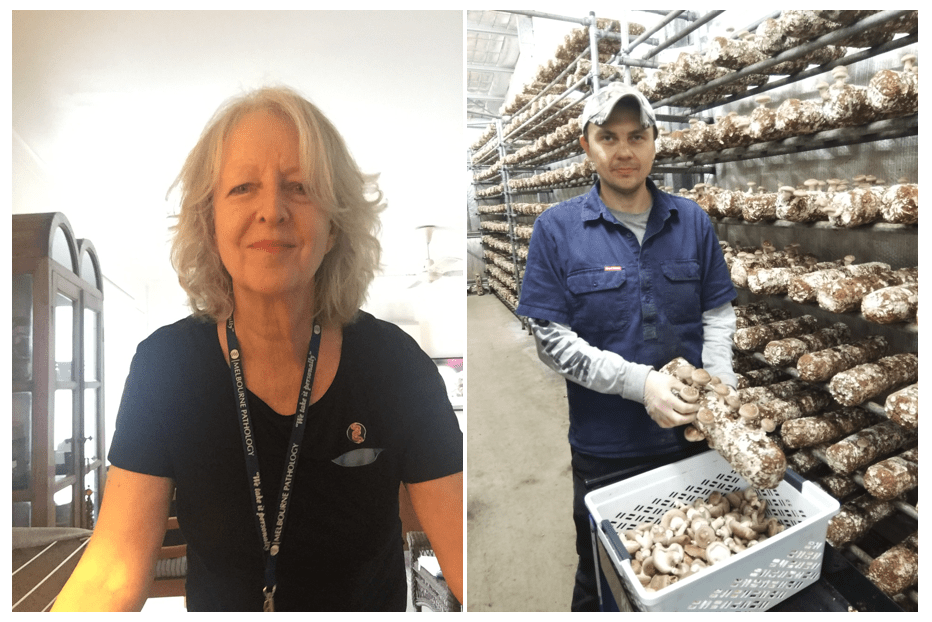In a time of social isolation, a love of Indonesian culture and language has been providing community and camaraderie for a diverse group of online UNE learners across Australia.
With learners from metropolitan Melbourne to regional Queensland and beyond, UNE lecturer in Indonesian language and culture, Dr Jane Ahlstrand, says what connects her students is “a really strong affinity with Indonesia” – which has made a difference in a year of global pandemic.
“I’ve seen students finding sanctuary; a safe and happy place in their studies. In a year of uncertainty and disruption, it’s been a comfort for many to have these weekly classes and a supportive online community,” she says.
Students take a break from the busyness of their professional lives to tune into classes in the afternoons and evenings to connect, share stories and experiences, and practise their language skills.
The format means it’s possible for students to get involved at any age and stage in life, and navigate other work and life commitments.
Ida van Selow, a pathology nurse in Melbourne, experienced short term stints in Indonesia as a teenager. At 63, she’s enjoying attaining competence with the language.
“Before visiting in 2001, I hadn’t returned to Bali for many years and was worried about how it might have changed. I went to Sanur, a lesser-developed part of the island, and my love for all things Indonesian was reignited,” she says.
After a few short-term language courses, she enrolled at UNE with encouragement from her partner.
“It was a bit of a learning process for me, but I have settled in quite nicely. For the first time in my life, I feel my Bahasa Indonesia is improving so much. Learning how to build proper sentences and useful phrases as well as conversation are all part of it.”
Dr Ahlstrand says while for Australians Indonesian isn’t the most popular choice of a second or other language, she’s constantly surprised by the diversity of the students in her class, their stories of how they developed a passion for the country and language, and how they are able to use the language in their everyday lives.
“I practise on the train to work, listening to stories, podcasts etc.,” Ida says.
“I work as a pathology nurse in the city and our branch happens to get a lot of Indonesian patients, so I enjoy having a little chat with them when they come in.”
Classmate Vlad Shulyak, a mushroom farmer in Queensland who grew up in the Ukraine, learnt German at school, but says at the time there were literally signs everywhere pointing to an exotic country he had never heard of.
“In the Ukraine, there was a motorcycle ‘Java’, cigarettes ‘Java’, ‘Javanese coffee’ and ‘Javanese spices’. I did not know where Java was, but it sounded remote and mystical to me,” he says.
On finally having the opportunity to visit Java after immigrating to Australia with his parents, he says “the real Indonesia exceeded my imagination!”
Vlad hopes to use the language skills he’s gaining at UNE to study a mainstream course in Indonesia and work in the Australian public service. Meanwhile, he can also practise his skills with an Indonesian worker he has hired on his mushroom farm.
Dr Ahlstrand says the enthusiasm Ida and Vlad bring to their learning is common in her classes.
“Once they discover Indonesia, they become hooked – it’s quite addictive! It’s the hidden gem right next door. And learning the language helps them gain access to this vibrant, colourful and completely different world.”
While the online Indonesian language and culture program had been established well before the COVID-19 pandemic, Dr Ahlstrand introduced a new informal weekly conversation class this year to help maintain connection and language during a time of social distance and isolation.
“In these classes, as well as practising language, I encourage students to share their stories about all aspects of visiting and living in Indonesia, to help develop a nuanced and genuine picture of the country.
“Students who can share their stories of in-country experience with other students during class help provide a more well-rounded understanding of Indonesia as well as motivation for those yet to visit the archipelago.”
Dr Ahlstrand says the natural diversity found in the online program coupled with a shared love of culture and language have seen the students thrive as an online community.
“Sharing and listening to stories about Indonesia is a great way to build rapport. A shared passion for learning about Indonesia and its language brings the students together regardless of age, experience, occupation or location.”
Image: UNE Indonesian Language and Culture online learners Ida van Selow, a Melbourne pathology nurse, and Vlad Shulyak, a mushroom farmer in Queensland.



Recent Comments